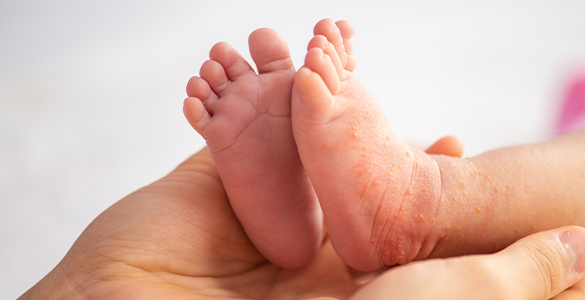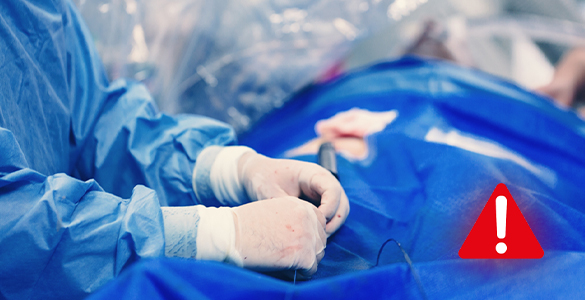Pediatric allergies are very common in children and can range from mild to severe. Allergies develop when the immune system overreacts to a normally innocuous chemical, seeing it as threatening. Parents frequently find it tough to manage allergies in their children, but with correct understanding and methods, many conditions may be properly handled. If you're seeking expert care, a pediatric hospital in Delhi or a super speciality hospital in Delhi can provide the necessary guidance and treatment options.
Understanding Childhood Allergies
Children can develop various types of allergies, including food allergies, environmental allergies, and sensitivities. Recognizing these issues early on can assist in properly managing and mitigate allergic responses.
Food Allergies
Some of the most common food allergens for children include:
- Milk
- Eggs
- Peanuts
- Tree nuts
- Soy
- Wheat
- Fish
Food allergies can cause symptoms ranging from minor, such as itching and hives, to severe, such as anaphylaxis, requiring rapid medical treatment.
Environmental Allergies
These include allergies to:
- Pollen
- Mold
- Dust mites
- Pet dander
Children with environmental allergies may have symptoms such as sneezing, runny nose, itchy eyes, and asthma.
Sensitivities and Intolerances
Unlike allergies, sensitivities and intolerances do not affect the immune system yet nevertheless produce discomfort. Lactose intolerance, for example, can cause bloating and diarrhea in the digestive system.
Causes of Allergies in Children
Allergies are caused by a variety of reasons, including:
- Genetics: A child is more likely to develop allergies if their parents or close family members have them.
- Early Exposure: Exposure to allergens at an early age can either cause allergies or aid develop tolerance.
- Environmental Factors: Pollution, dietary changes, and exposure to germs can influence the immune system’s response to allergens.
Identifying Allergens and Triggers
Parents may help their children by identifying and avoiding allergens. This can be accomplished through:
- Keeping a food diary to track reactions
- Observing symptoms and patterns
- Consult an allergist for specific tests, such as:
- Skin prick test.
- Blood Test (IgE Test)
- Patch Test
- Meal Schedule (with medical supervision)
Allergy Testing and Diagnosis in Children
To accurately diagnose allergies, doctors at a pediatric hospital in Delhi conduct:
- Medical history review
- Physical examinations
- Skin and blood tests to determine allergic reactions
Once an allergy is diagnosed, proper management strategies can significantly improve a child’s quality of life. These include:
- Avoidance Strategies
- Identifying allergies and reducing exposure
- Maintaining an allergy-free atmosphere at home and school
- Using air purifiers to treat environmental allergies
- Education & Awareness
- Teaching kids about allergies and how to avoid triggers
- Educating caregivers, instructors, and peers about emergency protocols
- Medication and Immunotherapy
- Antihistamines are used to treat minor responses
- Epinephrine auto-injectors are used to treat severe allergic responses
- Long-term relief from allergies can be obtained by immunotherapy (allergy injections)
Creating Allergy-Safe Environments at Home and School
To minimize allergy risks, it is crucial to:
- Maintain clean, allergen-free spaces
- Implement allergy action plans in schools
- Use hypoallergenic bedding and cleaning products
Anaphylaxis Preparedness and Emergency Plans
Anaphylaxis is a severe allergic reaction that requires immediate medical attention. Symptoms include:
- Difficulty breathing
- Swelling of the face, lips, or throat
- Dizziness or fainting
- Nausea and vomiting
Managing pediatric allergies requires awareness, proactive steps, and timely medical intervention. If your child experiences persistent allergic reactions, consulting a super speciality hospital in Delhican help ensure accurate diagnosis and effective treatment. Saroj Super Speciality offers the best Pediatric Allergies solutions and care to keep your child happy and healthy.


